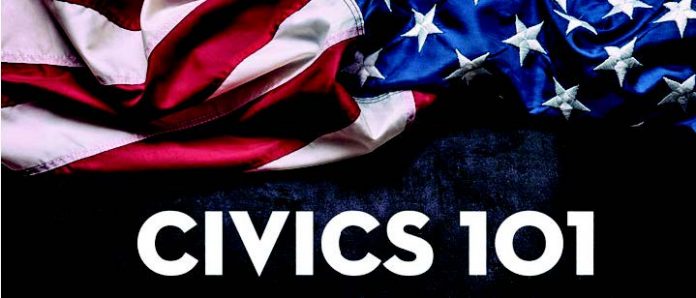In the past few days, Americans that are “woke,” have been seeing TV news coverage, hearing radio station commentators talk about it, and they’ve read about it in print and online. Hold onto your seats fellow Americans. Officials at the White House have started contacting various government agencies to forewarn them, “It looks like we’re getting ready to have a “government shut down.” So what does that mean?
For me, a government shutdown means that elected officials, at the Federal level (not all of them, but many of them), are playing politics, and the people who may get hurt while they “play,” oh well, what a shame.
When Democratic and Republican U.S. Congresspeople and U.S. Senators can’t come to a consensus on laws and budgets for our nation, it’s as if each side is trying to hold the other hostage. Translated, nothing gets done. Translated, you get a government shut-down.
Now, look at this word: “Non-essential.” How many times has that word been uttered by the government since the coronavirus pandemic hit in February 2020? (I say February 2020), but officials in the U.S. claim March 2020 as the official date of declaration that there was/is a pandemic. Thousands and thousands of business owners, as well as rank and file American workers with jobs ranging from being a burger flipper at McDonald’s to being a senior executive at Essence Magazine, were told, “You are non-essential workers.” You must stay home. Your place of work is shut down. Your business is closed until further notice.”
In this case of a government shut-down, the first government workers to get hit will be the rank and file, so-called, “non-essential workers”. They would be furloughed. However, members of Congress, the President, and other “excepted” workers would not be furloughed. The Supreme Court and most of the judiciary would operate normally in a limited shutdown. Some legislative services would also be affected by a lack of immediate funding.
Other exempt programs include national security and homeland security, government-supplied medical services, food, drug, and environmental inspections, air traffic control, power grid activities, criminal investigations, and disaster assistance. Social Security checks will still go out, but new claims could be delayed since employees to handle those claims may be affected.
Additionally, for the public, National Park Service sites could be closed, as well as national museums and monuments, including all Smithsonian properties. Applications for passports and visas could be stalled. The issuance of Social Security cards could be suspended. The E-Verify system for employers to check worker eligibility, including citizenship status, could be closed down. Approvals of the Food and Drug Administration (FDA) medical products, devices, and drugs could be delayed. And Lord knows America needs the FDA to be operating normally as we still await final approval from the FDA for the Pfizer Covid-19 vaccination to be administered to children ages 5 to 11. Federal research activities could come to a standstill. Federal loans to small businesses, homeowners, and housing and healthcare facility developers could be stalled, and we don’t need that to happen either, tied back to the devastation from the pandemic.
Vocational rehabilitation and education counseling services for veterans could be stopped.
Government workers who are furloughed don’t get paid during a government shutdown. Once the shut-down is lifted, furloughed workers do receive back pay. Hopefully, a shutdown won’t happen this time.
Top infectious disease official Dr. Anthony Fauci warned the pandemic makes this the worst time for a government shutdown. “The worst time in the world we want to shut down the government is in the middle of a pandemic where we have 140,000 people a day getting infected and 2,000 people a day dying,” the Washington Post quoted Fauci as saying in an interview.
FYI—The General Election is coming up on Tuesday, November 2, 2021. Make sure you vote. If you’re not registered to vote, the last day to register to vote before the November 2nd election is October 18th. The last day to apply for a mail-in or civilian absentee ballot is October 26, 2021. Don’t wait until the last minute. Do your civic duty as an adult, age 18 or over. Get registered to vote and vote by mail before election day, or go in-person and vote on Tuesday, Nov.2nd. In next week’s Civics 101 column, I’ll remind you of what offices are up for grabs in Philadelphia and key state-wide races for November 2nd. Stay tuned.


